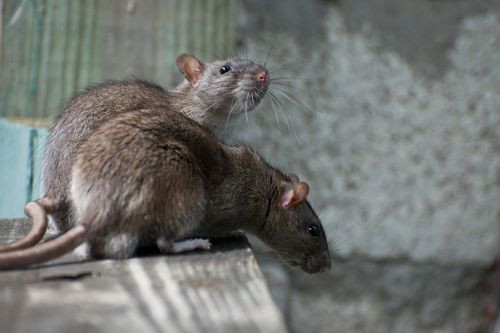Your Brain Shows How Confident You Are: How Rats Taught Scientists A Thing Or Two About Confidence

Confidence, more often than not, is considered an emotion. A person feels more confident when they take their time to make big-time decisions, like where they’ll go to college or, let’s be honest, if they’ll stick to their diet and order the salad over the burger, right? Maybe not — not if a new rat study published in the journal Neuron has anything to say about it.
First, scientists at Cold Spring Harbor Laboratory (CSHL) in Cold Spring, N.Y., found rats can be confident in the same way humans can be. They were able to discern this when they devised two experiments, one where rats were trained to associate a certain odor with one of two doors for a reward, and another where rats had to choose the stronger odor among a mixed scent as the strong, or dominant, odor represented the correct door and reward. The latter choice, scientists said, reflected a rat’s best guess. And they found that when choosing between scents, rats spent up to 15 seconds on their decision — “a lifetime to these animals,” Adam Kepecs, lead study author and associate professor at CSHL, said in a press release.
"We found that the rats are willing to 'gamble' with their time. This is something that we can measure and create mathematical models to explain," Kepecs said. "The time rats are willing to wait predicts the likelihood of correct decisions and provides an objective measure tracking the feeling of confidence."
In other words, a rat’s confidence could be mathematically measured simply by the amount of time it’s willing to wait to arrive at a confident decision. A concept scientists suggested has to do with a rat’s orbitofrontal cortex (OFC). The OFC is located in the brain’s frontal lobe (for humans, too), and it’s considered “the secondary taste cortex,” as found by a study in Brain and Cognition that explored its main functions. Researchers for this study wrote “areas of the [OFC] are activated by pleasant touch, by painful touch, by taste, by smell, and by more abstract reinforcerments such as winning or losing money.” And if a person's OFC is damaged, there's research that associates it with bad decision-making.
To get a closer look at the role a rat’s OFC plays in their decisions, Kepecs and his fellow researchers inactivated those neurons and found that after the fact, rats no longer exhibited appropriate levels of confidence in their decisions. "With an inactive OFC, the rats retained the ability to make decisions — their accuracy did not change," Kepecs said. "And they spent the same amount of time waiting for a reward on average. The only difference is that animals' willingness to wait for a reward was no longer guided by confidence. They would often wait a long time even when they were wrong."
Kepecs hopes to expand his research to get a better understanding of that elusive confidence. Until then, he noted the human brain is simply an upgraded version of a rat’s brain, which means a human’s confidence could soon be mathematically quantified, too. Cool?
Source: Armin Lak, Gil M. Costa, Erin Romberg, Alex Koulakov, Zachary F. Mainen and Adam Kepecs "Orbitofrontal cortex is required for optimal waiting based on decision confidence.” Neuron. 2014.



























